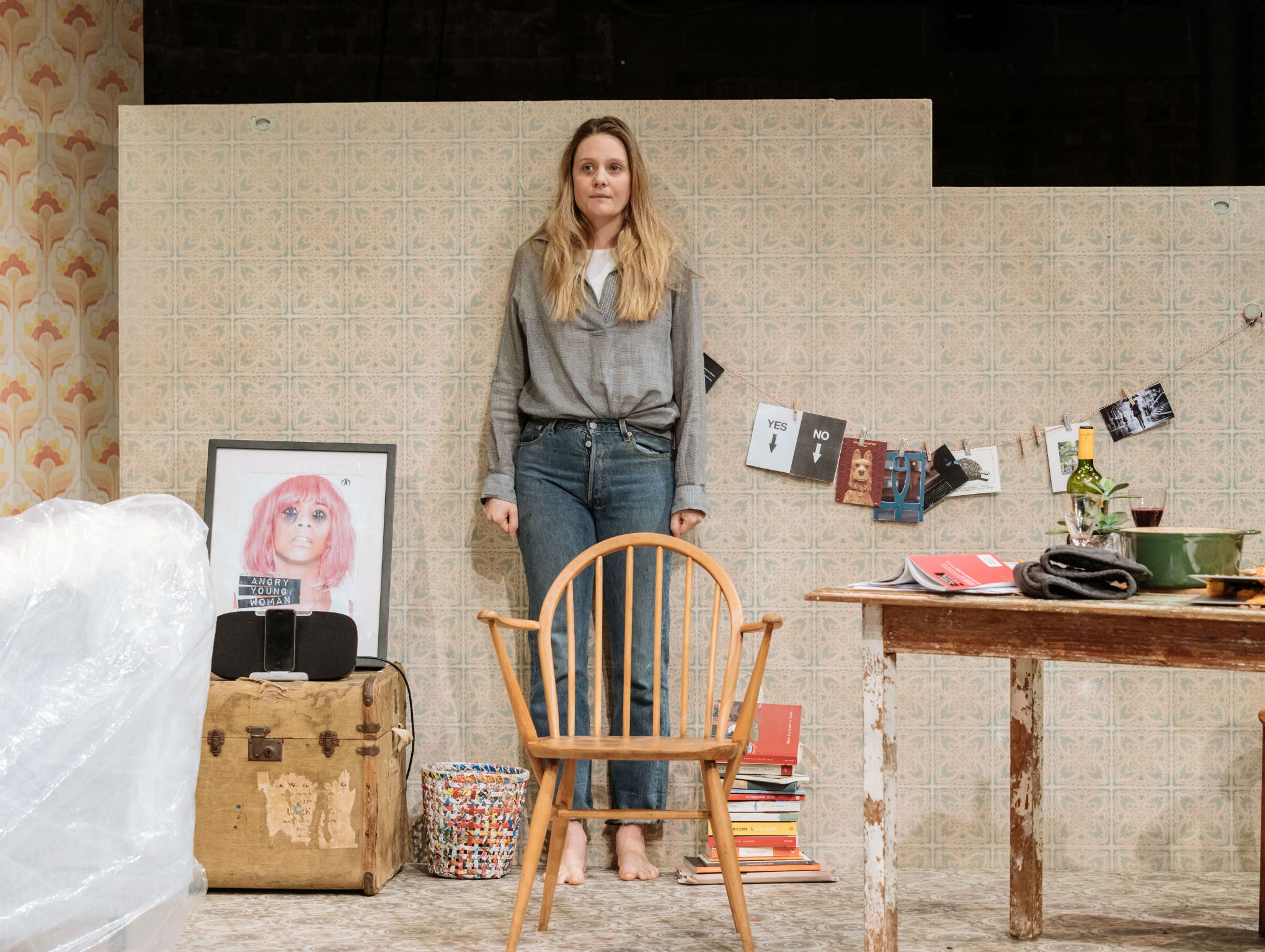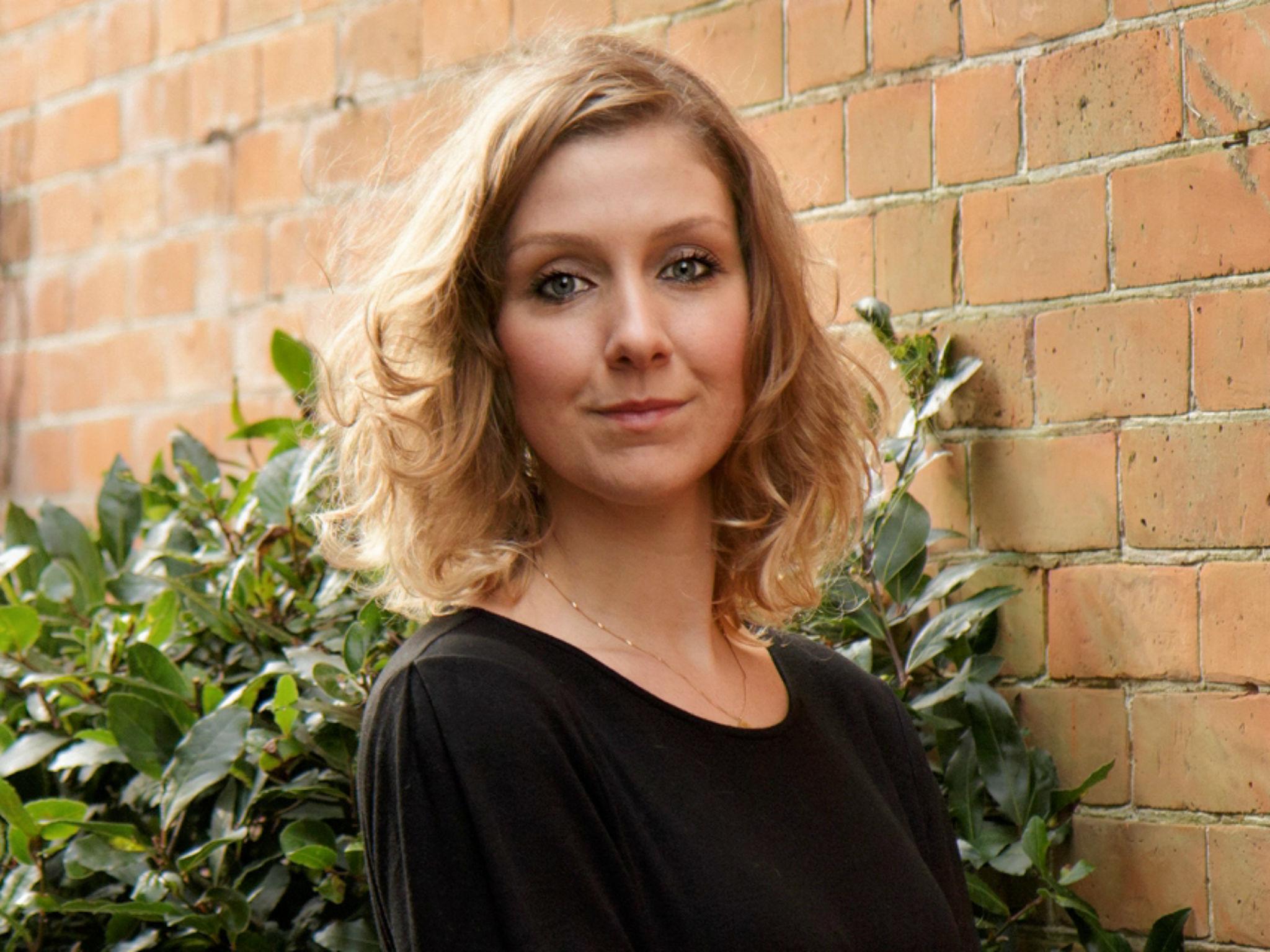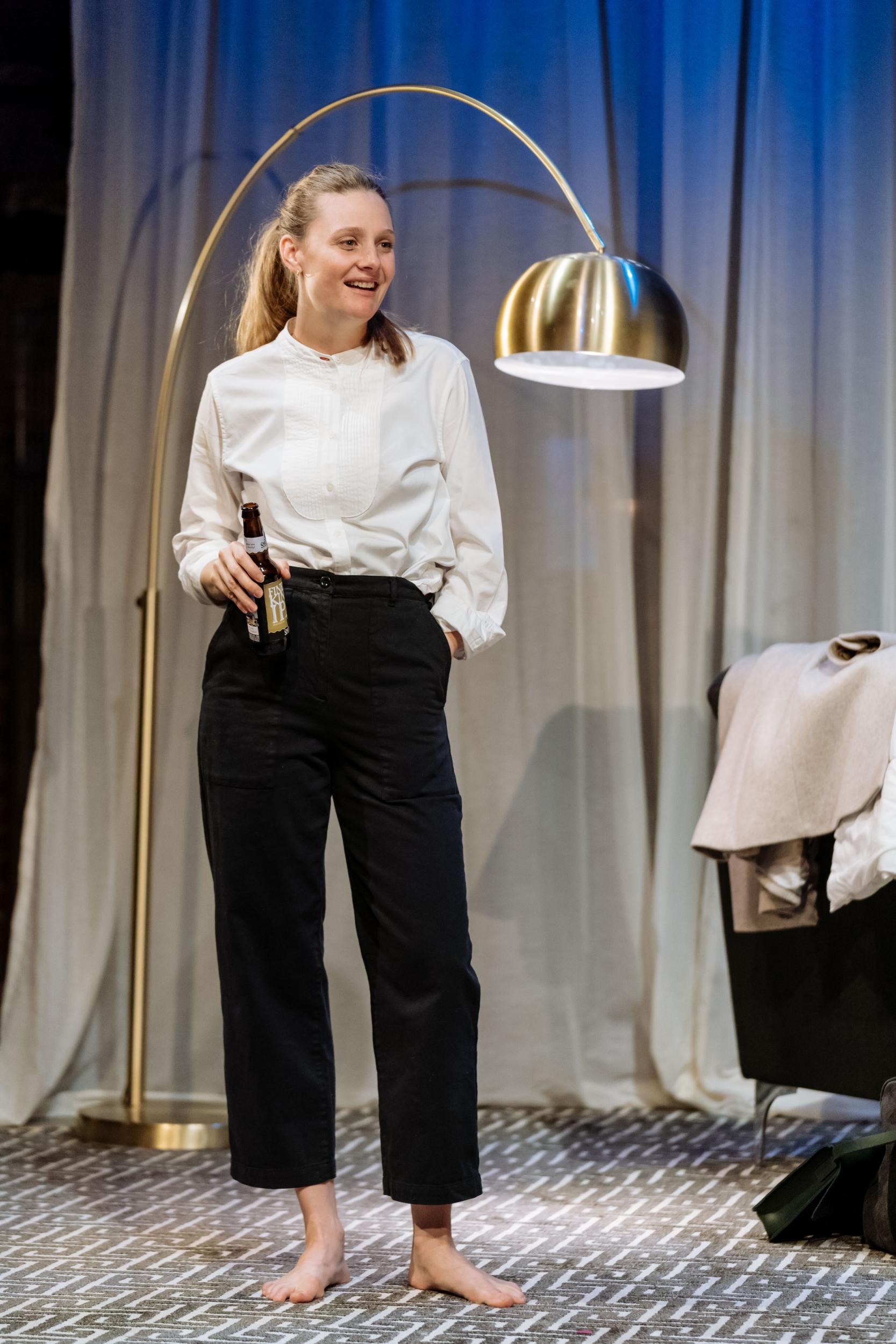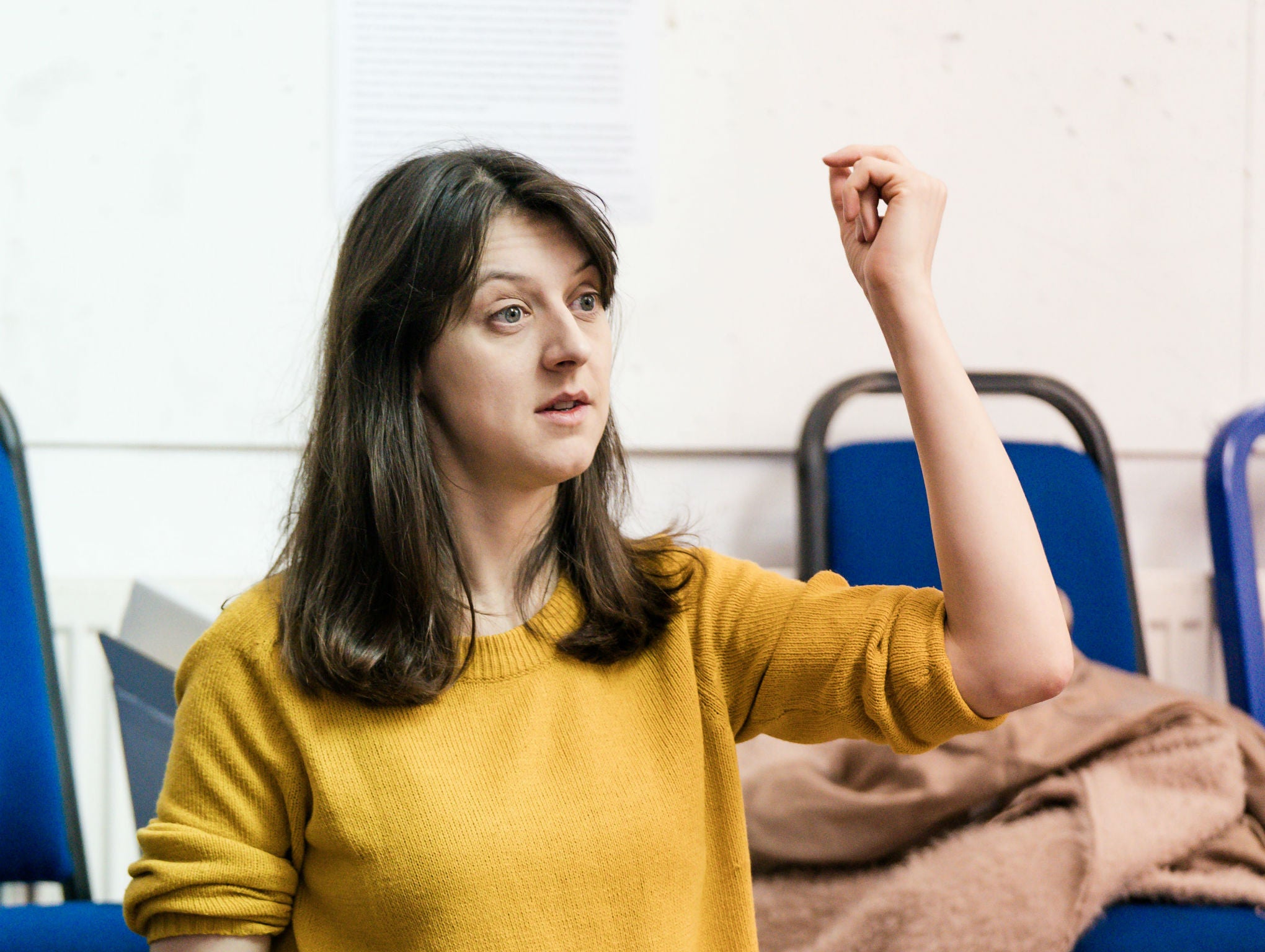'Dismantle capitalism and overturn the patriarchy': Why The Writer is more than just a #MeToo play
Romola Garai, playwright Ella Hickson and director Blanche McIntyre on how theatre needs to be fearless in both form and content

Your support helps us to tell the story
From reproductive rights to climate change to Big Tech, The Independent is on the ground when the story is developing. Whether it's investigating the financials of Elon Musk's pro-Trump PAC or producing our latest documentary, 'The A Word', which shines a light on the American women fighting for reproductive rights, we know how important it is to parse out the facts from the messaging.
At such a critical moment in US history, we need reporters on the ground. Your donation allows us to keep sending journalists to speak to both sides of the story.
The Independent is trusted by Americans across the entire political spectrum. And unlike many other quality news outlets, we choose not to lock Americans out of our reporting and analysis with paywalls. We believe quality journalism should be available to everyone, paid for by those who can afford it.
Your support makes all the difference.The Writer opens with a crackling interaction between a young woman and an older man. He’s a director, she’s a writer. He has the power – and he’s turned on by the commercial potential of her rage.
Because she is furious: about the state of the world, about the systemic stranglehold of capitalism and patriarchy, and about the toothlessness of our theatre in the face of it. “I can’t remember the last time I watched a thing that looked even half alive. Fake hair and new shoes and famous people doing boring things badly… you can smell the money.”
It could be a description of a lot of British theatre. And it reflects the real feelings of the dream-team of brilliant young women involved in this show.
The Writer is written by Ella Hickson, whose last play Oil was also at The Almeida in north London. It stars Romola Garai – of Suffragette and The Hour fame – as “the writer”, and is directed by Blanche McIntyre. We all meet on the first sunny day of the year, sitting on a patch of grass merry with yellow celandines near the theatre – and talk about rage.

“I sit politically with that character,” says Hickson when I ask if she feels the same anger as the fictional writer within her play. “It’s a rage that is fearless: I genuinely have no fear about shouting that loud. I realised, I suppose, that people might start putting my plays on with slightly less resistance, and when you’re in that position, you have a responsibility to say the difficult things. It makes no sense if you just say easier and easier things...”
“Or you become Noel Coward,” quips McIntyre.
“Exactly. It’s just grim,” agrees Hickson. “I don’t understand why you would use the little bit of power that you gain for anything other than helping other people get a little bit more power.”
So what is the play trying to say? There’s a constant questioning of the function of theatre that may feel a shade navel-gazey – but it also makes wider arguments about how art has been swallowed by commercialism, how women’s creative voices are co-opted, circumscribed and exploited by powerful men, and how the male gaze dominates the way we consume culture. It feels potent. It also feels timely.
The Writer contains a scene that could have been reported in any newspaper over the last few months: that director character praises the young writer’s talent, before making a pass at her.
How excitingly nimble theatre can be! I thought on reading it. What thrillingly fast programming by the Almeida, to get on a #MeToo play within months.
Except The Writer is not a #MeToo play.
Or at least, it’s not just a #MeToo play.
Hickson submitted the script to artistic director Rupert Goold three days before the Weinstein story broke. And while many writers would be delighted to prove so prescient, Hickson is anxious about the play being “co-opted into that narrative: it feels boring and reductive”.
She wants to talk about money, not just sex.
Because the whole older director-younger playwright trope is a metaphor, guys. “If someone does a 10-minute speech about the exploitation of commercialism, everybody falls asleep. You need a human to human interaction that nails in dramatic action what you’re trying to talk about thematically,” she says.
“What is the human equivalent of commercial exploitation? An older man exploiting a younger artist for sex. So it was that, rather than ‘let me get this exciting anecdote out of my back pocket’.”

Garai, who has spoken out about an encounter with Harvey Weinstein in a dressing gown, shares Hickson’s frustration. “It’s similar to the conversations you have with journalists about Weinstein: they want to talk about sex, you want to talk about money. You’re only in these situations because of money, how it’s distributed, who owns the corporation… and the play makes that point. It starts off talking about gender, but it ends up talking a lot more about money.”
It also talks about itself: The Writer is hugely self-reflexive. It keeps turning in on itself, so that each scene makes you question the reality – and the political point – of the one before. That opening scene is thoroughly deconstructed: because actually, it isn’t enough to deliver politics in conventional sparky-dialogue. The form itself must be revolutionary.
“What feels very new about this play is it is making formal points and political arguments simultaneously, and those things can interact,” says Garai. This is depressingly rare, she suggests. “I find it hard to think of any play in the last ten years that’s had any prominence, certainly not that’s been given a West End transfer, that’s explicitly political in any way.”
It is heart-breaking, Hickson adds, that one of the biggest laughs comes when Garai’s character states that their intention as a writer is to “dismantle capitalism and overturn patriarchy”.
“It just gets a huge roar that she’s even attempting to do that. At the point where that is hilarious, you’re signing yourself up to their being no political shift ever,” says Hickson, with evident frustration.
“That’s happened deliberately,” insists Garai, arguing that a generation that “presented capitalism as the way forward for our society” quite intentionally also reframed artistic movements that emphasised the power of art to change the world as “foolish”.
The Writer‘s double-punch of challenging form and content has proved divisive among audiences, however. They either really love it, or they really hate it.
“I’ve never done a show where the demographic that likes it and the demographic that doesn’t are quite so clearly defined,” says Hickson. The young, queer crowd interested in gender politics are going nuts, while “the people who come more for a straightforward good night out find it a bit more uncomfortable”, the playwright acknowledges, adding with a grin that “in the older male range, there’s a wilful ignoring of their own cliché”.
Still, the aim is not to alienate those audiences, but to open-up discussion. McIntyre sees theatre as a tool for that, “a civic thing, that everyone uses as a machine for their thinking”.

But if theatre is going to do that effectively, it’s going to have to change from within. And our theatrical landscape could be instantly revitalised by “commissioning more female writers, commissioning writers from diverse backgrounds, commissioning writers who are not middle class”, suggests McIntyre.
And commissioning those voices “needs to be de-coupled from the need for the plays to make a million. When they do need to do that, you fall back on your old classics,” McIntyre says of the current economic imperatives that actually drive the theatre industry.
There’s often an unreasonable, unspoken burden placed on any writers seen as risky: shows by white dudes are allowed to fail, shows by anyone else are not. This can also be felt dramaturgically, Hickson points out, with female writers put through “rewriting hell” by male artistic directors, while men have their work “waved onto big stages with relatively few adjustments”.
“I have worked with female writers where their social need to look obliging and collaborative is higher, so their work goes through considerably more drafts,” chimes in Garai. “Having the courage to say ‘I’m not going to do any more’ comes at a much higher social cost [for women].”
“There are two or three directors who introduce me as ‘brilliant but difficult’,” adds Hickson wryly. “And I don’t think I am difficult to work with. The assumption is [the man] is masterly, whereas I get called difficult.”
They’re right: “difficult” is a term that can sound gendered. But maybe it is also one ripe for reclaiming, just like “nasty woman” has been swiped back by women protesting against Trump. After all, as Hickson said at the start of our conservation, if you’re given a voice, you should use it to say the difficult thing.
‘The Writer’ is at The Almeida until 26 May (almeida.co.uk)
Join our commenting forum
Join thought-provoking conversations, follow other Independent readers and see their replies
Comments